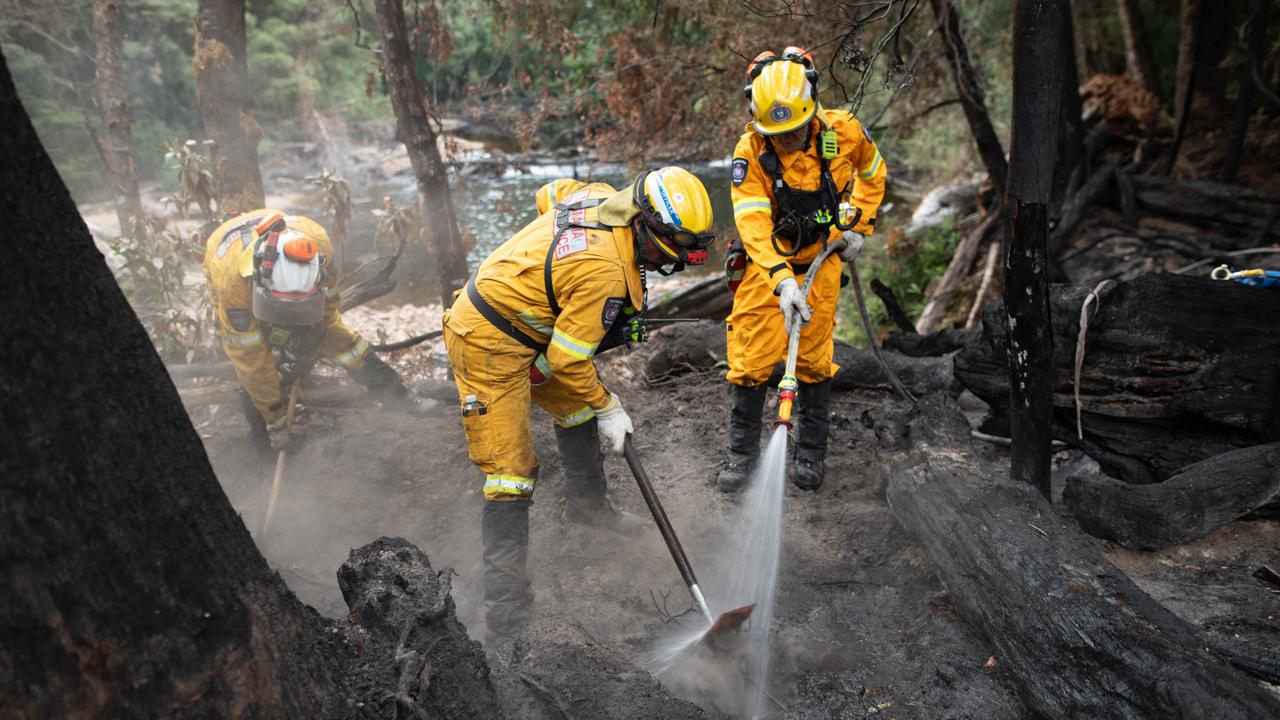RSV Nuyina to embark on first ever dedicated marine science voyage to Denman Glacier, Antarctica
The nation’s flagship icebreaker, RSV Nuyina, will next week set off on a voyage described as “one of Australia’s most ambitious scientific endeavours in decades”.
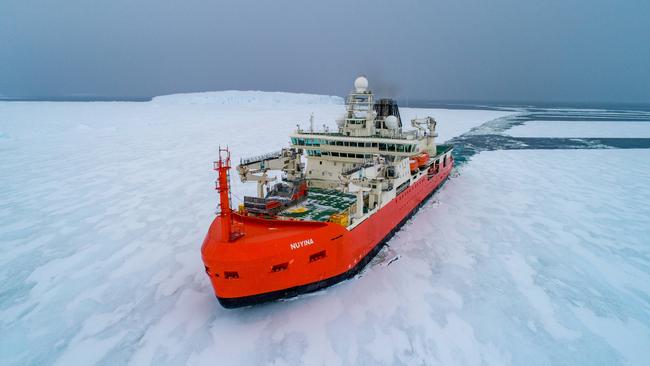
Tasmania
Don't miss out on the headlines from Tasmania. Followed categories will be added to My News.
RSV Nuyina, the flagship icebreaker of the Australian Antarctic Program, will embark on its first ever dedicated marine science voyage next week, carrying a team of 60 scientists to research a huge, fast-melting glacier in the hope of answering crucial questions about climate change and rising sea levels.
The $528m Romanian-built ship will set out on a two-month voyage to East Antarctica next Friday and will return in May, with the primary goal of the trip being to learn the secrets of the fast-melting Denman Glacier, which holds enough ice to increase global sea levels by 1.5 metres.
Head of the Australian Antarctic Division (AAD), Emma Campbell, said this meant it was “vital” that the division gained a greater understanding of the glacier.
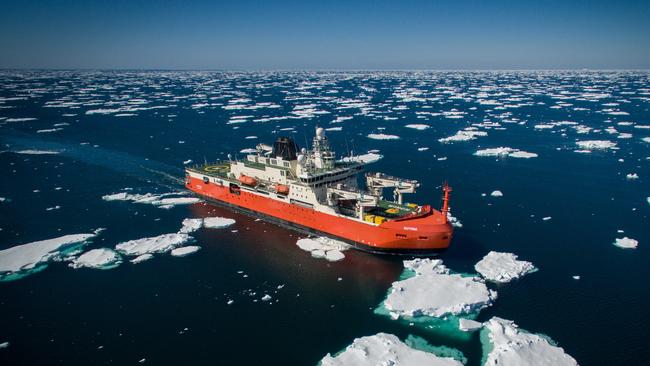
“Scientists will use RSV Nuyina’s world-leading marine science capabilities to investigate the factors impacting the glacier’s melt rate, and what it means for future sea levels,” she said.
“It is fantastic that the Australian Antarctic Program can bring such a diverse group of scientists together, using our world-class icebreaker to answer critical questions about climate and Antarctic environments.”
Other objectives of the voyage include uncovering marine life on the sea floor, measuring physical and chemical properties of the ocean to help determine current and future ice mass loss and sea level rise, and documenting the response of krill and other zooplankton to ocean warming in order to better understand the health of the Antarctic marine ecosystem into the future.
Scientists from the AAD, the Australian Centre for Excellence in Antarctic Science (ACEAS), the Australian Antarctica Program Partnership (AAPP), and Securing Antarctica’s Environmental Future (SAEF) will be on-board and a significant number of early-career scientists will be among them.
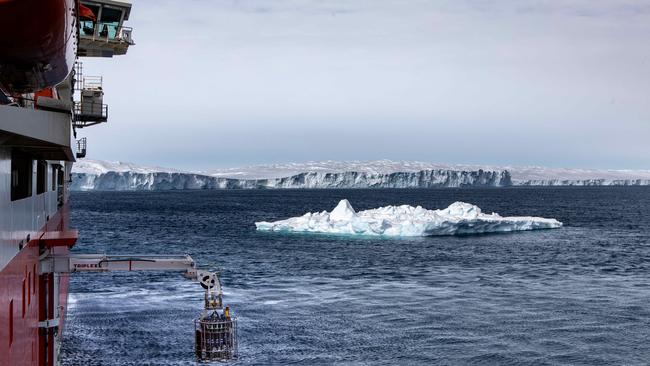
Dr Laura Herraiz Borreguero, from the CSIRO, representing the AAPP, said a “key question” regarding the Denman Glacier was “what is driving the loss of ice mass”.
“We want to find out how vulnerable the Denman Glacier is to the warming ice and the likelihood of it making a larger and faster contribution to sea level rise during the next few decades,” she said.
“Our atmosphere team will use radar and weather balloons to trace how clouds form over the Southern Ocean, which is crucial for improving climate models.
“Another team will use Nuyina’s ‘wet well’ to capture plankton and study how environmental changes in the ice and ocean will affect food webs.”
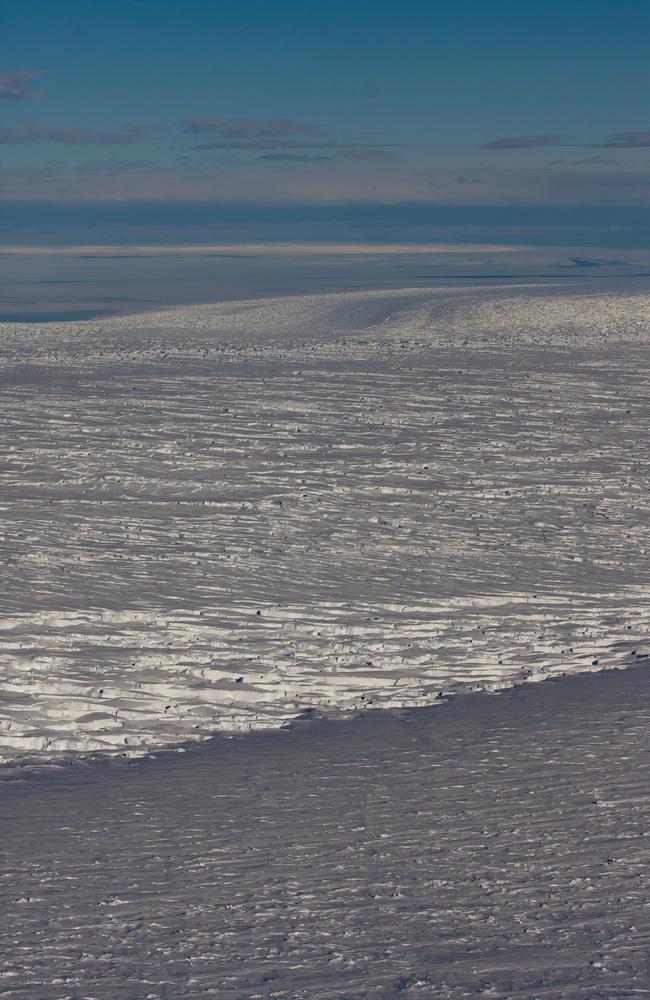
Professor Delphine Lannuzel, from ACEAS at the University of Tasmania, said the Denman Glacier was “one of the most dynamic and vulnerable parts” of the East Antarctic Ice Sheet.
“This is a unique opportunity for ACEAS scientists and collaborators to study this remote area and contribute our piece of the puzzle to understand the drivers and consequences of changes,” she said.
The Nuyina comprises about 150 marine science systems and the Denman voyage will be the first time the icebreaker has embarked on a dedicated voyage to conduct marine research.
Since it was launched in 2021, the ship has not been without its technical troubles, such as malfunctioning cranes and software glitches, and it has been hamstrung by refuelling limitations.
Dr Leonie Suter, a genetics researcher with the AAD, said scientists on the Denman voyage would assess marine biodiversity by examining environmental DNA samples collected from the ocean.
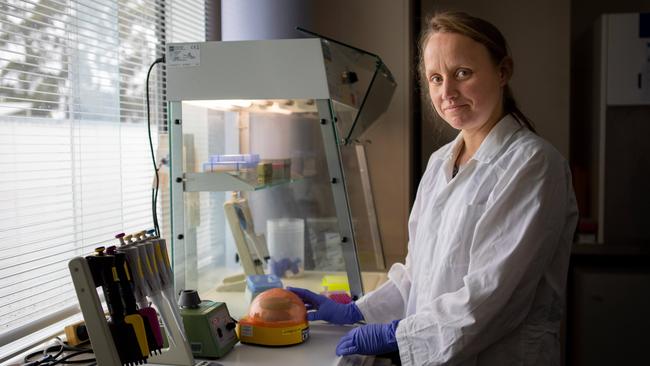
“eDNA is genetic material shed by all organisms into the environment,” she said. “By taking a small water sample we can get genetic traces they’ve left behind and determine what animals live in the environment.”
Environment and Water Minister Tanya Plibersek described the Denman Glacier as “globally significant but sadly it’s under threat from climate change”.
“We know the decline of this glacier doesn’t just impact the Antarctic region – it could affect the Southern Ocean and even the world’s ecosystems,” she said.
“That’s why the Albanese Labor government is investing $17.6m to enable the Nuyina to undertake more expeditions for scientific research – including the first dedicated marine science voyage to the Denman Glacier.
“This is one of Australia’s most ambitious scientific endeavours in decades, sending an elite group of researchers to one of the world’s most remote places.”
More Coverage
Originally published as RSV Nuyina to embark on first ever dedicated marine science voyage to Denman Glacier, Antarctica




